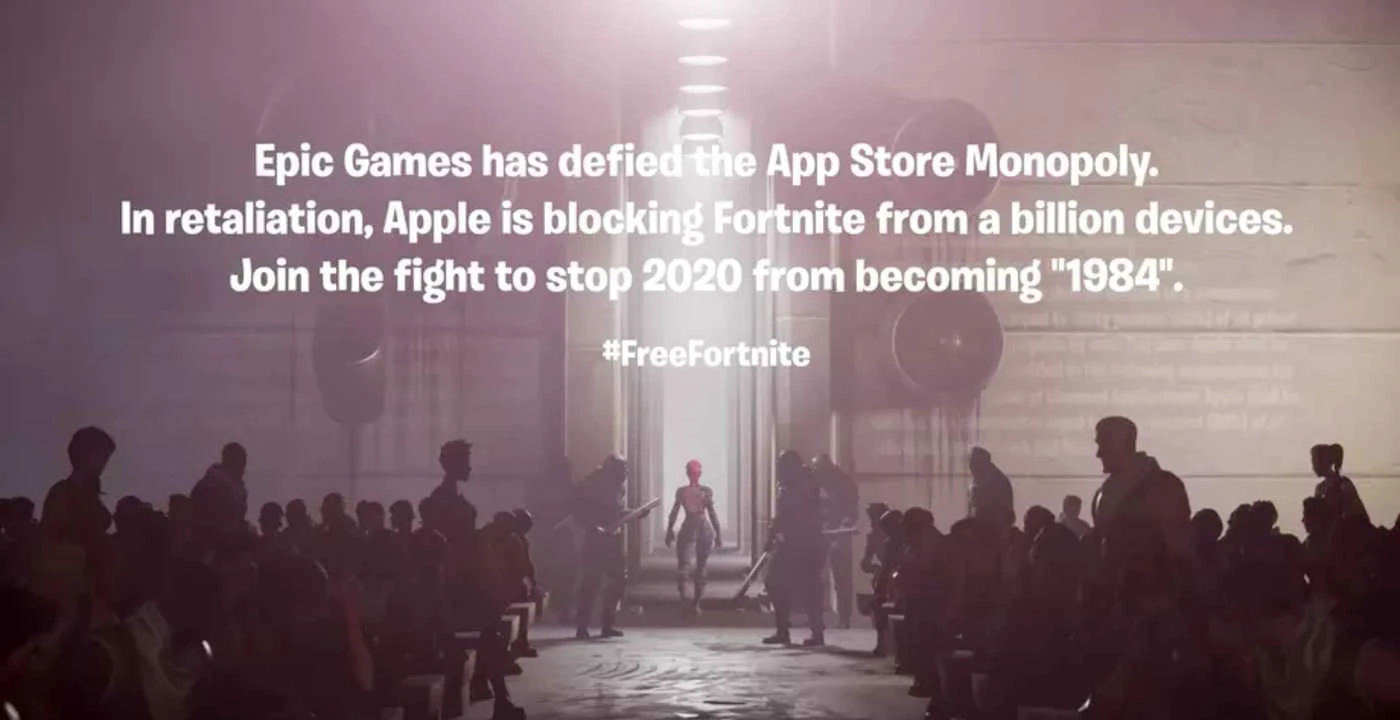Update: Google has removed Fortnite from the Play Store after Epic implemented its own payment system in the Android version of Fortnite as well, leading Google to take similar action. Android users can still download Fortnite using Epic’s own app launcher, which it distributes independently through any mobile web browser.
“The open Android ecosystem lets developers distribute apps through multiple app stores. For game developers who choose to use the Play Store, we have consistent policies that are fair to developers and keep the store safe for users,” a Google spokesperson said.
“While Fortnite remains available on Android, we can no longer make it available on Play because it violates our policies. However, we welcome the opportunity to continue our discussions with Epic and bring Fortnite back to Google Play.”
Apple has removed Epic Game’s flagship game Fortnite from the App store, after a Fortnite app update that allowed players to buy in-game currency at a lower rate if they bought direct from Epic, bypassing Apple.
On Thursday, Fortnite began offering players discounts if they made in-app purchases through direct payment, rather than through the App Store, allowing the developer to bypass Apple’s commission fee for transactions.
As outlined in the App Store terms, Apple charges developers 15 to 30 per cent for in-app purchases or downloads.
According to Apple, Epic Games implemented the new feature, “which was not reviewed or approved by Apple,” with “the express intent of violating the App Store guidelines regarding in-app payments that apply to every developer who sells digital goods or services.”
Epic Games made the direct payment option available in the in the United States, Canada, Australia, France, Germany, Spain, the United Kingdom and said that because apps that offer real-life goods and services like Uber and StubHub are not required to use Apple’s in-app purchase mechanism, Fortnite should be entitled to the same treatment.
Epic Games has also called Apple and Google’s 30 percent commission on in-app purchases “exorbitant.”
In a statement, Apple said it would “make every effort to work with Epic” to resolve the issue, but that it would not allow the game developer a “special arrangement”.
“Epic has had apps on the App Store for a decade, and have benefited from the App Store ecosystem – including its tools, testing, and distribution that Apple provides to all developers. Epic agreed to the App Store terms and guidelines freely and we’re glad they’ve built such a successful business on the App Store,” the statement reads, in part.
“The fact that their business interests now lead them to push for a special arrangement does not change the fact that these guidelines create a level playing field for all developers and make the store safe for all users.
“We will make every effort to work with Epic to resolve these violations so they can return Fortnite to the App Store.”
It would appear Epic has deliberately defied the App Store Monopoly and were well prepared for the apps removal. Shortly after the apps removal, the company filed a civil antitrust lawsuit against Apple and released the following short video on the Fortnite Twitch and YouTube channels.
The video is a piss-take on 1984, an American television commercial which introduced the Apple Macintosh personal computer for the first time.
“Apple has blocked Fortnite from the App Store, removing everyone’s ability to install and update the game on iOS devices, while instructing Epic to ‘remove the ‘Epic direct payment’ feature’. Apple is keeping prices high so they can collect 30 per cent of your payments, and is blocking Fortnite in order to prevent Epic from passing on the savings from direct payments to you!” the company said.
“Join the fight against @AppStore on social media with #FreeFortnite.”
On iOS, the App Store is the only way to legally load apps. But Apple said Epic had taken the “unfortunate step of violating the App Store guidelines”. Those guidelines ban any payment system apart from Apple’s own, and has been the subject of several high-profile rows between developers and Apple.
Epic said any iPhone players who already have the app installed should be able to continue playing until the game’s next update rolls out. After that, they will lose some features.
Those on an Apple Mac computer will not be affected, since that version does not use the iOS App Store.
Epic Civil antitrust lawsuit against Apple
In the filing, Epic Games accuses Apple of being a “the behemoth seeking to control markets, block competition, and stifle innovation” and imposing “anti-competitive restraints” and using “monopolistic practices in markets” against App Store developers.
Apple imposes unreasonable and unlawful restraints to completely monopolize both markets and prevent software developers from reaching the over one billion users of its mobile devices (e.g., iPhone and iPad) unless they go through a single store controlled by Apple, the App Store, where Apple exacts an oppressive 30% tax on the sale of every app. Apple also requires software developers who wish to sell digital in-app content to those consumers to use a single payment processing option offered by Apple, In-App Purchase, which likewise carries a 30% tax.
With the lawsuit, Epic Games says it is not aiming for a cash payout, but instead wants to secure “injunctive relief” in the iOS App distribution market and payment processing market for ” hundreds of millions of consumers and tens of thousands, if not more, of third-party app developers.”
[embeddoc url=”https://cdn2.unrealengine.com/apple-complaint-734589783.pdf” download=”logged” viewer=”google”]


